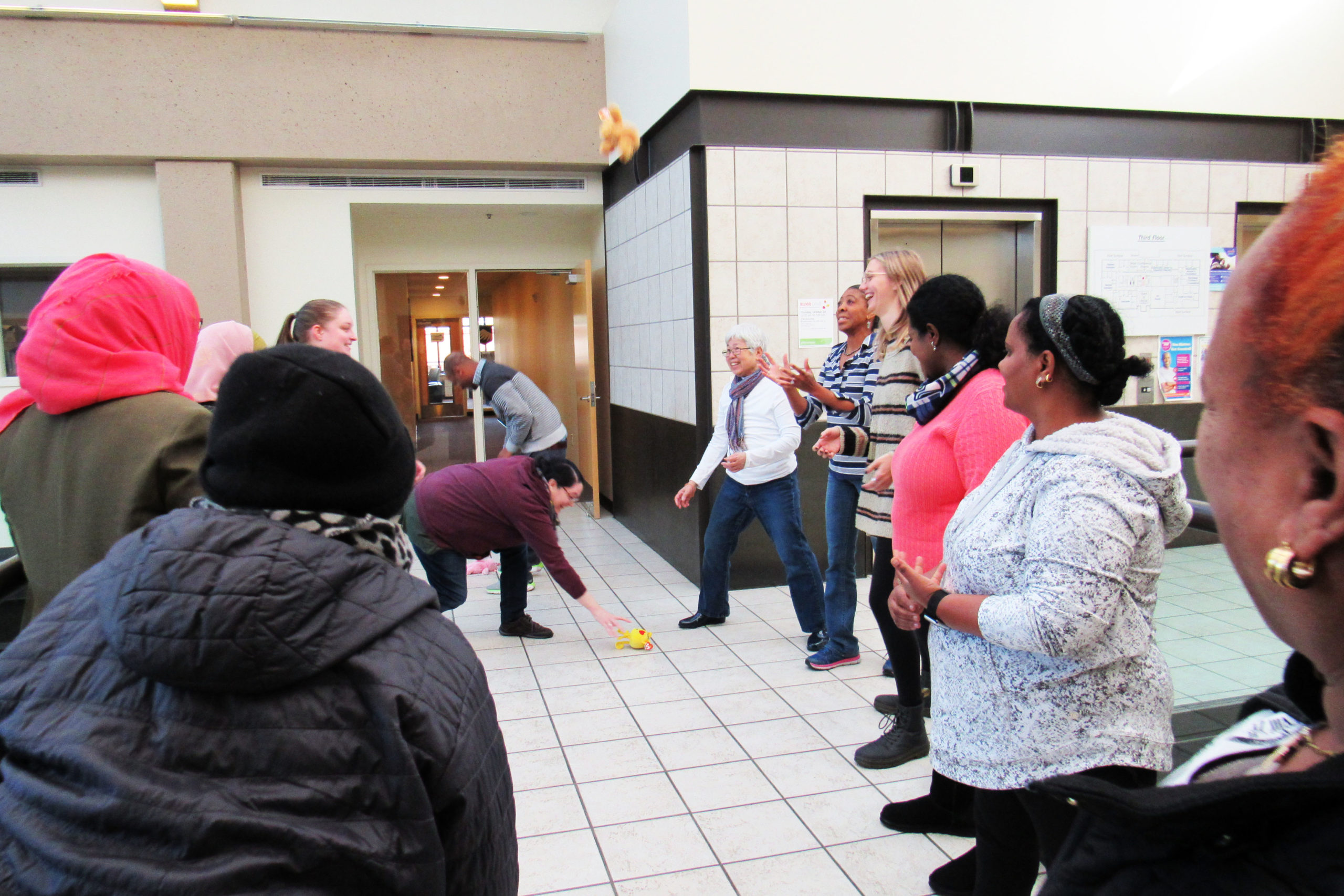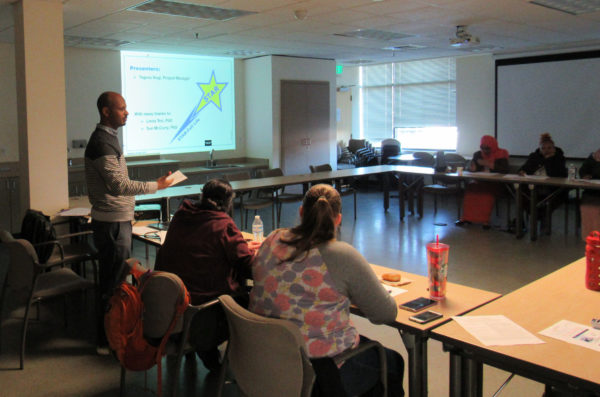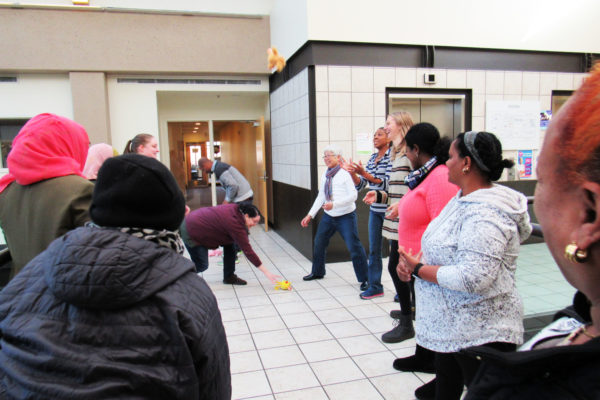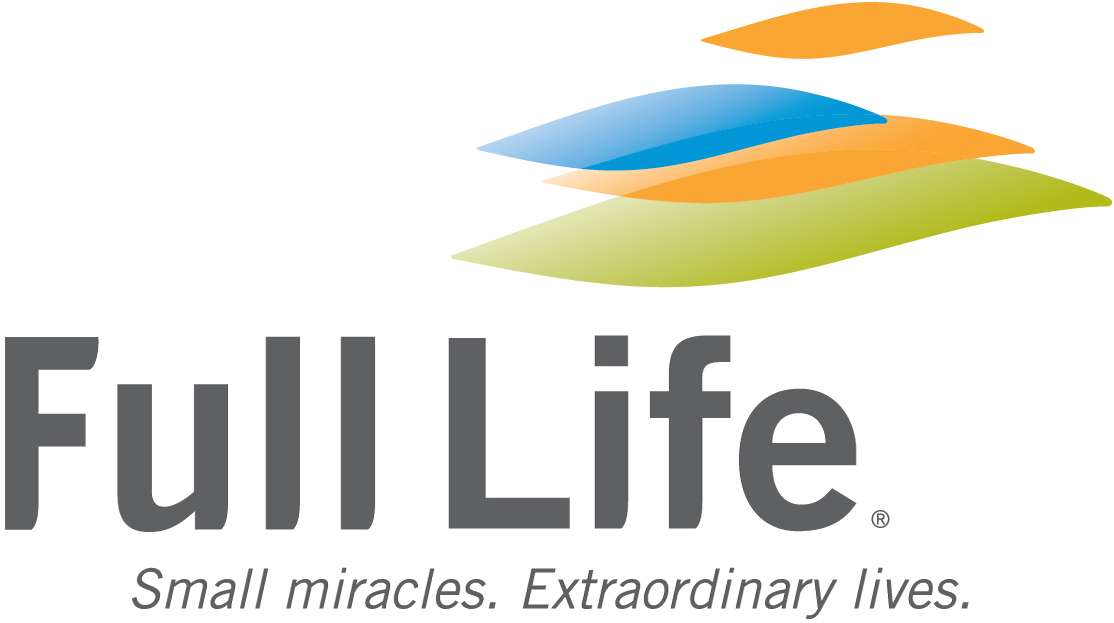STAR-Full Life dementia grant work continues with training, outreach

December 4, 2019

Tegenu Negi begins the day-long STAR-Full Life dementia training session Nov. 20, 2019 at the 2100 Building, Seattle.
Full Life Care’s ongoing training efforts continued vigorously in November with another successful STAR-Full Life dementia training session, providing Full Life Care home care workers, staff and community partners with proven techniques for success in working with and supporting persons with dementia.
The training sessions are just one part of an extensive, three-year, $1.2 million dollar grant project being conducted by Full Life to develop, enhance and implement dementia-capable services that will address gaps in services in King and Snohomish counties for adults with Alzheimer’s Disease-Related Dementias (ADRD) and their paid and family caregivers.
More than a dozen staff and community members participated in the November 20 session at the 2100 Building. Tegenu Negi, project director and Full Life Director of Dementia Services, conducted the all-day training session. The sessions are intended to fulfill the first of the grant’s three primary objectives: To educate, train and support paid caregivers, Full Life Care staff and community partners serving adults living alone with ADRD.
The training curriculum is evidence-based and derived from 20 years of research by University of Washington’s Linda Teri, Ph.D., and Sue McCurry, Ph.D. The two developed step-by-step methods of working with dementia patients on day-to-day challenges caregivers face. The result of their work is practical, effective techniques for helping clients accomplish everyday tasks and improve their quality of life.
The methods also have proven to make the job of the caregivers less stressful, resulting in more effective treatment overall.
Tegenu made the day-long session fun, relating his own experiences as former director of Full Life’s memory care homes. He’s worked with dementia patients extensively, and can relate to the challenges his workshop attendees’ face.

Participants in the STAR-Full Life dementia training break the ice with a little stuffed toy tossing to emulate the challenges of juggling tasks faced by all caregivers for persons with dementia.
He also broke the morning ice with an exercise, having the attendees form a large circle and toss stuffed toy animals back and forth among themselves, picking up the pace as they went along.
“Faster, faster,” Tegenu said, as the participants laughed and dropped the animals and tossed them at an increasing pace.
“Now,” he said, “Isn’t that what we deal with every day? Juggling different needs and things changing all the time. And we just try to keep up.” Everyone laughed and agreed.
The rest of the day was spent learning and practicing the skills that would help each caregiver to help their clients and turn unproductive behaviors into positive and productive actions.
So far, in 10 sessions, 140 staff have completed the training. Sessions will continue until all Full Life staff have participated.
Much more grant work is also underway or yet to come. Full Life is currently also addressing grant objective #3: “To expand access, availability and participation in specialized services for adults with ADRD in the community, including adults with moderate to severe ADRD” through Full Life Adult Day Health Memory Care and Wellness Services and a new Wellness program – Wellness Wednesdays. Participants meet at the Center Park Community Room, 2121 26th Ave S, Seattle, from 10 a.m.-2 p.m. to enjoy coffee, socializing, art projects, music, cooking, games and crafts. Sessions will be held every Wednesday except for December 25 and January 1.
And in January Full Life begins addressing grant objective #2, to educate, train and support family caregivers of adults with moderate to severe ADRD. Those training sessions hope to include some 90 family caregivers in the next three years.
“Without a doubt, this is important work,” said Full Life acting Executive Director Scott Slater. “Adults with ADRD have lived vigorous and productive lives. They’ve earned and they deserve their community’s support now in their time of need, and we’re happy to step up and help meet that need.”
All of this work is made possible by funding from the Administration on Aging, Administration for Community Living Alzheimer’s Disease and Related Dementias Grant.
For more information on the grant or Wellness Wednesdays, or if you are interested in having a training session for your staff please contact Tegenu at Tegenun@FullLifecare.org, or 206-240-2545.

